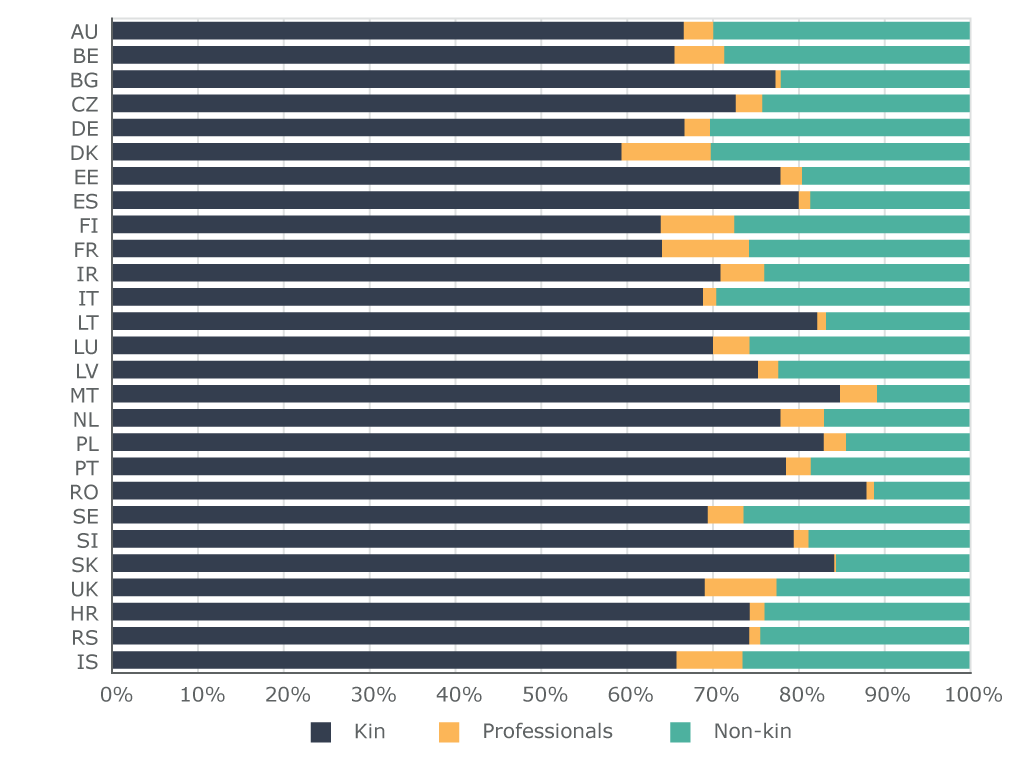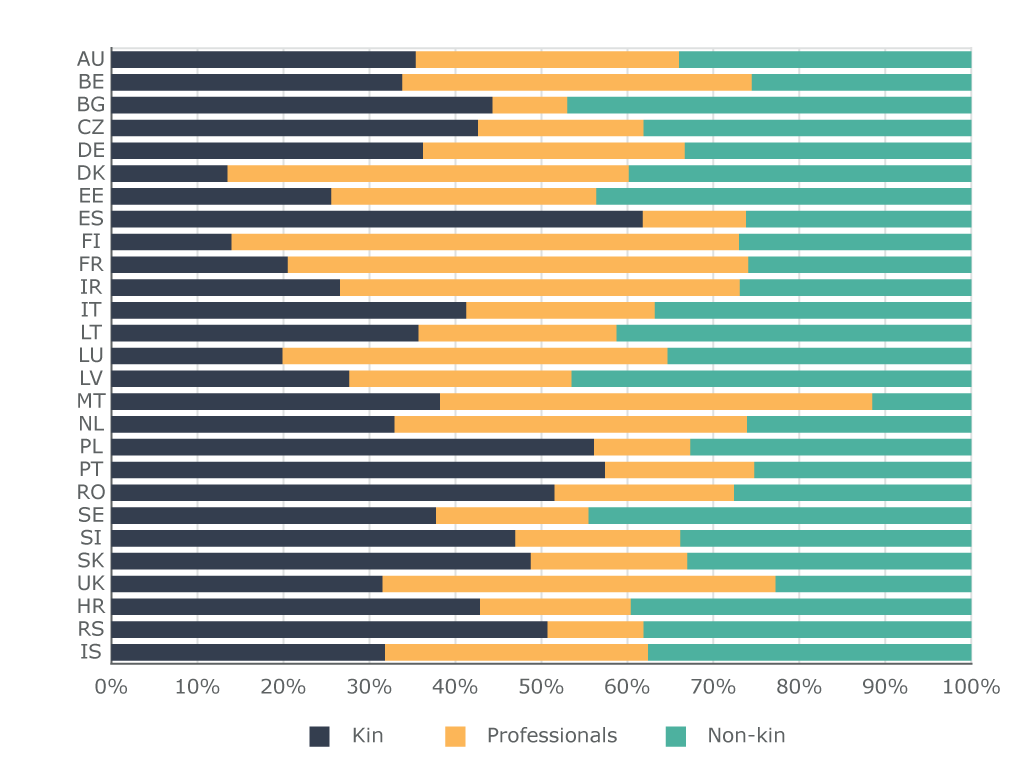In a new study, Conkova, Fokkema and Dykstra examined the extent to which Europeans opt for support from friends, neighbors and colleagues when looking for advice and help with finding a new job. The authors compared preferences for kin, non-kin (unpaid) and professional (paid) support with data from the European Quality of Life Survey for 27 countries. Their results suggest that Europeans vary greatly in their preferences for support, and that these variations are associated with the cultural context in which they are embedded.
Overall, results reveal a sequence of preference in Europe: Individuals tend to turn to kin first, followed by non-kin and professional help, indicating that the supportive role of families has not ceased to exist despite recent societal changes. This picture also holds true at the country level for advice, but not for help with finding a job. For advice, non-kin ties are most often reported as a potential source of support in Austria, Germany, Denmark and Italy and least often in Malta and Romania (figure 1). For help with looking for a job, the analysis shows that citizens in Bulgaria, Estonia, Iceland, Latvia, Lithuania and Sweden are most often ready to turn to non-kin than to kin and professionals. The role of professionals seems to be most prominent in Denmark, Finland, France, Ireland and Malta whereas kin ties are most often selected as a primary source of help when looking for a job in Poland, Portugal, Serbia, Slovakia and Spain (Figure 2). Given these large variations in preferences for non-kin support, Conkova and her colleagues concluded that the differences between countries are more nuanced than the previously proposed north/west-south/east divide of Europe.

Figure 1: Per country observed probabilities for advice

Figure 2: Per country observed probabilities for help when looking for a job
In terms of the role played by cultural contexts in shaping preferences for a source of support, results indicate that increasing country-levels of individualism, which entails values of independence and autonomy, are weakly related with higher chances that Europeans will prefer professional over non-kin support. In turn, country-level norms of family obligations are strongly associated with preferences for kin rather than non-kin support. The authors conclude that cultural values are only able to shape people’s choices for support if country regulations and institutions allow them to be really independent.